What joining the WTO means for Uzbekistan’s future?
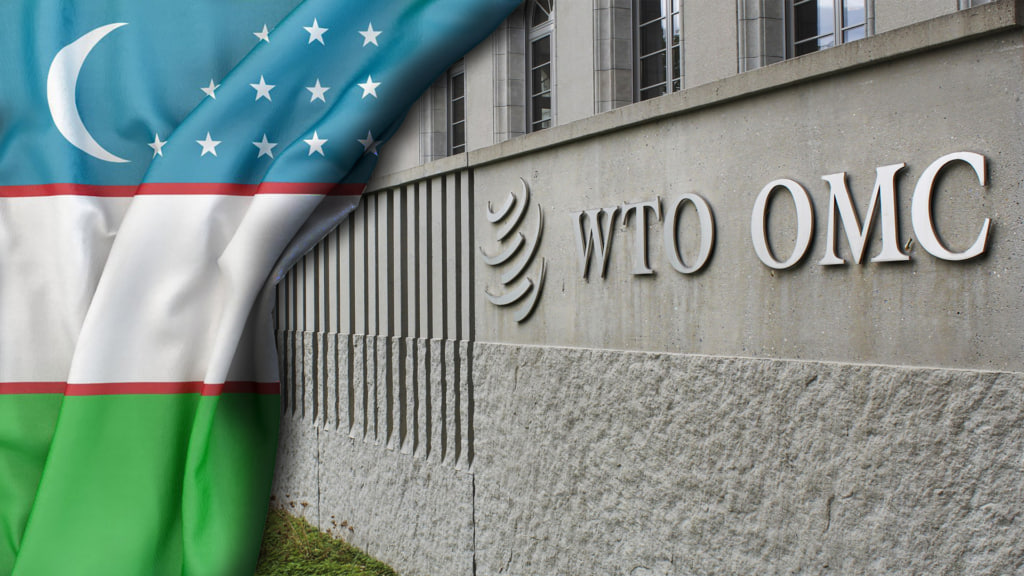
Photo: Getty images
At some point in the next 1-2 years Uzbekistan is going to join the WTO. When that happens, everything that our government officials and civil servants have come to know about how to run government is going to change and there will be no turning back. Joining the WTO is an event the consequences of which will reverberate through every segment of the national legal order. It is also a serious commitment that will require our government to accept and undergo a wide range of far-reaching reforms. Policies, instruments, and mechanisms of governance the use of which heretofore has been taken for granted in many cases will have to be discontinued or fundamentally modified.
There is no international organization in existence, outside the European Union, accession to which requires the applicant state to accept as many profound and lasting changes to its legal and institutional structure as well as its basic political economy as the WTO.
Let there be no mistake: joining the WTO is not only going to impact Uzbekistan’s existing international rights and obligations, it will also trigger a whole raft of fundamental changes in many areas of Uzbekistan’s national legal and political system, inducing in some cases an immediate restructuring of government ministries and in other cases a radical reorientation of economic policies, not least in the agricultural sector. Questions that traditionally have been seen in Uzbekistan as matters of exclusively national competence will now become issues of international concern, that is to say, issues that other WTO member-states will be entitled to make remonstrations and demand explanations about. Matters of strategic policymaking that no one previously would have doubted were part of Uzbekistan’s sovereign prerogative will now be subject to international scrutiny, regulation, and in some cases legal challenge.
All this will require numerous, often difficult adaptations at many different levels of government. Moreover, because the support of the state in many cases will no longer be available to the majority of local businesses in some sectors, and because the degree of protection against foreign competition that previously shielded local producers will now be significantly reduced, it will also bring a wave of profound changes to the Uzbek economy as a whole.
Inevitably, this raises the question familiar to every international lawyer: can Uzbekistan rather than signing up to every WTO treaty accept only some of them but not others?
The answer to that is, essentially, no. States may join the WTO regime only on the basis of the so-called ‘single undertaking’ model. In other words, by acceding to the 1994 Marrakesh Agreement (a.k.a. the Agreement Establishing the World Trade Organization), with a couple of very modest exceptions, they automatically sign up to every document listed in its Annexes. This includes most notably the General Agreements on Tariffs and Trade on Trade in Services, and the TRIPS.
The two exceptions are the so-called plurilateral agreements on civil aircraft and on government procurement. These are the treaties that WTO members are free to skip over. From a political economy point of view, on balance they are of a much lower level of importance than other WTO treaties.
In the course of accession negotiations, it is normal for public debate to focus on the four central pillars of the WTO legal system: the GATT, the GATS, the TRIPS, and the Dispute Settlement Understanding (the procedural code for the resolution of legal disputes under WTO law). Leaving aside these four core documents, the knowledge of which no doubt has greatly improved among our government officials in recent years, let us rather draw attention to three basic points that some of them might not be fully aware of, but which will acquire increased prominence as Uzbekistan moves beyond the point of accession.
Firstly alongside these four central documents, of no less greater importance for Uzbekistan, from the administrative law point of view, are going to be the WTO Agreement on Agriculture, which will significantly limit the ability of the government to govern the agricultural sector in what you might call the traditional command-administrative manner; the Agreement on Subsidies, which outlaws the use of almost all forms of state aid; the Anti-Dumping Agreement, which prescribes a very particular procedure for the application of anti-dumping measures in cases where imported goods are suspected of being sold at prices lower than their normal values; and the Agreements on Sanitary and Phytosanitary Measures and the Technical Barriers to Trade. Any attempt to understand and predict the impact which the accession to the WTO will have on our legal and political systems requires a close examination of each of these treaties and the respective case-law accumulated in connection with them.
Consider, for instance, the implications which the accession to the Subsidies Agreement will have for the administrative and judicial sectors. Article 10 of the Agreement requires that the imposition of any countervailing duties on foreign subsidised products that are imported into the markets of the member State must take place only pursuant to a duly initiated and conducted investigation by a duly authorised ‘investigative authority’. Article 12 of the same agreement further requires that all interested parties, which includes, inter alia, the exporters and the foreign producers in question, should be given proper notice of such investigations and ‘ample opportunity to present in writing all evidence which they consider relevant in respect of the investigation in question.’ Furthermore, where good reasons for this exist, such evidence may also be first presented orally and, unless the information concerned is confidential, other interested partis and other member States will be entitled to see this evidence, which means that the national investigating authority will have to provide the necessary means for them to do so. Before making any final determination on the outcome of the investigation, moreover, the investigating authority shall release what is known as the statement of the essential facts, that is to say, in juridical terms, a preview of its ratio decidendi. Under Article 22 of the agreement, the investigating authority is furthermore required at every stage of the proceedings to publicize the course and progression of the said proceedings and to provide a clear explanation of its reasoning. And, by virtue of Article 23, the member State in question is further obligated to put in place an independent judicial review procedure in relation to the actions of the investigating authority, which should be made accessible to all interested parties as defined previously.
Now, of course, this is only a very brief summary of one of the several chapters of the Subsidies Agreement. But note the pattern: public notice, opportunity to present evidence, dissemination of information to all interested parties, release of the essential facts statement, public explanation of reasoning, and lastly an independent judicial review procedure. All of this creates clear and unavoidable obligations that are not necessarily trade-focused. These obligations, rather, concern the duty to introduce a series of internal institutional reforms within both the executive and the judicial branches of power. And satisfying this duty in practice, among everything else, will place considerable demand on both of these branches in terms of personnel requirements (human capital), training needs, and salary expenses. To run an investigating authority that is capable of meeting the kind of procedural obligations that the Subsidies Agreement imposes on member states, and to have that authority then also be supplemented by a corresponding judicial review system, will require a considerable commitment of resources some of which are significantly more difficult to accumulate and mobilise on a short notice than others.
The second thing that we want to flag up is perhaps self-evident. The WTO regime is not just a list of treaties or a judicialized dispute settlement system. Knowing what we know about the typical profile of litigating countries and about Uzbekistan’s own track record of previous involvement in international litigation, the WTO dispute settlement system is not really going to be the main priority in terms of what Uzbek government officials need to study today. A far more important role in the day-to-day activities of the WTO regime is played by its multiple committees and councils and, accordingly, the obligations of notification, consultation, and policy reporting that trickle down from these bodies to the respective national-level institutions, and the resulting changes this brings to the administrative structure of the state apparatus. Any attempt to appreciate the implications of WTO membership for Uzbekistan should include a close examination of the working processes and implicit understandings on the basis of which these bodies operate and interact with member states. And, of course, this too will require a considerable commitment of resources and forward planning.
The third thing we wanted to mention – and we are going to stop here – is the Trade Policy Review Mechanism. WTO law textbooks will rarely inform you of this, but by far the greatest test each member state faces after it joins the WTO comes not in the shape of any potential litigation it may have to deal with under the DSU, but the periodic self-assessment reports it has to submit to the WTO Trade Policy Review Body and the subsequent scrutiny these reports undergo there. And even more so than in the case of the resource requirements imposed under the Subsidies Agreement that we mentioned earlier, to navigate the TPRM process successfully will require a very serious commitment of institutional and human resources. As Uzbekistan fast approaches the final stretch of its accession negotiations, it is perhaps high time to start thinking about how these types of resources are going to be mobilised and other related practicalities connected to that.
Akbar Rasulov, Professor at the University of Glasgow
Recommended
List of streets and intersections being repaired in Tashkent published
SOCIETY | 19:12 / 16.05.2024
Uzbekistan's flag flies high on Oceania's tallest volcano
SOCIETY | 17:54 / 15.05.2024
New tariffs to be introduced in Tashkent public transport
SOCIETY | 14:55 / 05.05.2023
Onix and Tracker cars withdrawn from sale
BUSINESS | 10:20 / 05.05.2023
Latest news
-
Uzbekistan's first ambassador to Serbia begins official duties
SOCIETY | 11:27
-
Massive embezzlement uncovered at Andijan State University: Rector, chief accountant and other officials jailed
SOCIETY | 20:36 / 07.07.2025
-
Uzbekistan's economy expands 6.8% in first half of 2025
SOCIETY | 20:34 / 07.07.2025
-
Heatwave triggers nearly 250,000 emergency calls across Uzbekistan
SOCIETY | 20:31 / 07.07.2025
Related News
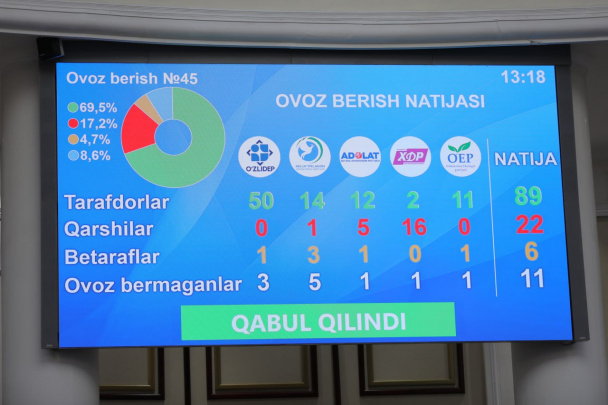
12:46 / 07.07.2025
New penalties and obligations await farmers: Draft law sparks controversy among deputies
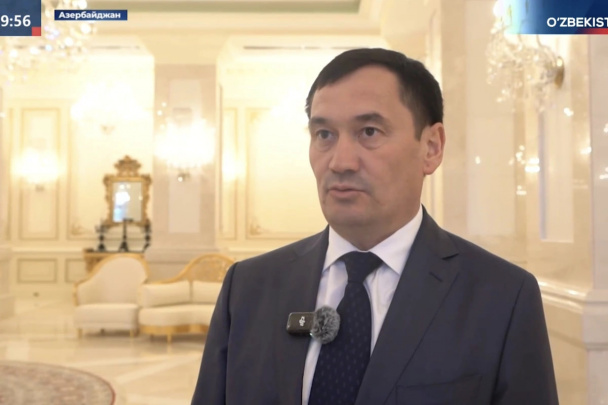
16:03 / 05.07.2025
Uzbekistan plans to launch national ferry service in Caspian Sea
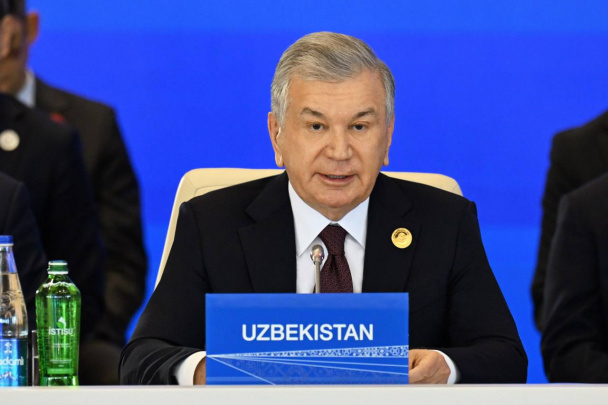
17:31 / 04.07.2025
Shavkat Mirziyoyev calls for end to violence in Gaza, urges recognition of Palestinian state
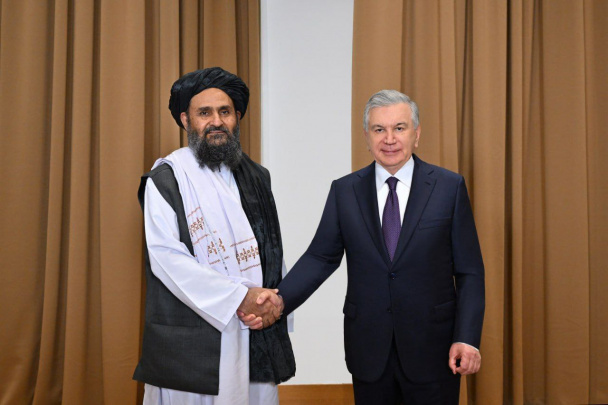
20:01 / 03.07.2025



